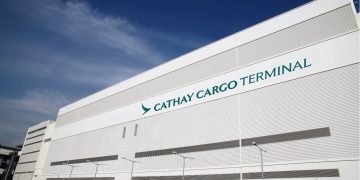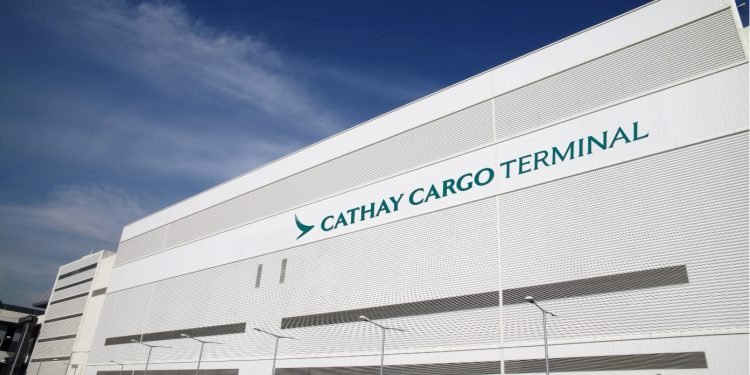Cathay Cargo Terminal (CCT) has marked a significant leap in logistics innovation by becoming the first cargo terminal operator in Hong Kong to implement end-to-end digitalization for import collection. The introduction of Electronic Shipment Release Forms (eSRF) at CCT presents a paradigm shift, promising forwarders a more agile and efficient service in the realm of logistics operations.
The incorporation of eSRF functionality streamlines the entire import collection process, allowing freight forwarders to navigate their tasks with increased efficiency and adaptability. Cathay Pacific underscores the enhanced security of eSRFs compared to conventional paper-based methods, offering improved visibility for customers and contributing to sustainability goals by eliminating paper Shipment Release Forms (SRF) and reducing archival storage requirements for freight agents.
In the pre-digital era, securing SRFs involved manual authentication processes and queues for truck dock and cargo clearances. The advent of eSRF simplifies these procedures, enabling electronic authentication and issuance. Airlines can now provide eSRFs, facilitating pre-registration, automated truck dock allocation, and online queuing for cargo clearance.
This innovative eSRF feature serves as an integral module within the Import Air Cargo Collection Digitalization initiative of the Airport Authority Hong Kong’s (AAHK) HKIA Cargo Data Platform. As a pioneering cargo terminal partner of AAHK, Cathay Cargo Terminal collaborated on this solution in consultation with vital stakeholders, including the Hong Kong Association of Freight Forwarding and Logistics (HAFFA), airlines, cargo agents, truckers, and regulators.
Mark Watts, Chief Operating Officer of Cathay Cargo Terminal, draws a parallel between the introduction of eSRF and game-changing innovations like e-tickets in passenger aviation. This collaborative effort with AAHK emphasizes the industry’s commitment to harnessing digitalization for heightened efficiency and transparency in logistics operations. The HKIA Cargo Data Platform, operating on blockchain technology, plays a central role in connecting air cargo stakeholders, fostering global supply chain digitalization, innovation, and trade facilitation. This collective endeavor signifies a substantial stride towards embracing standardized and community-driven solutions, facilitating seamless data sharing across intricate logistics supply chains.























